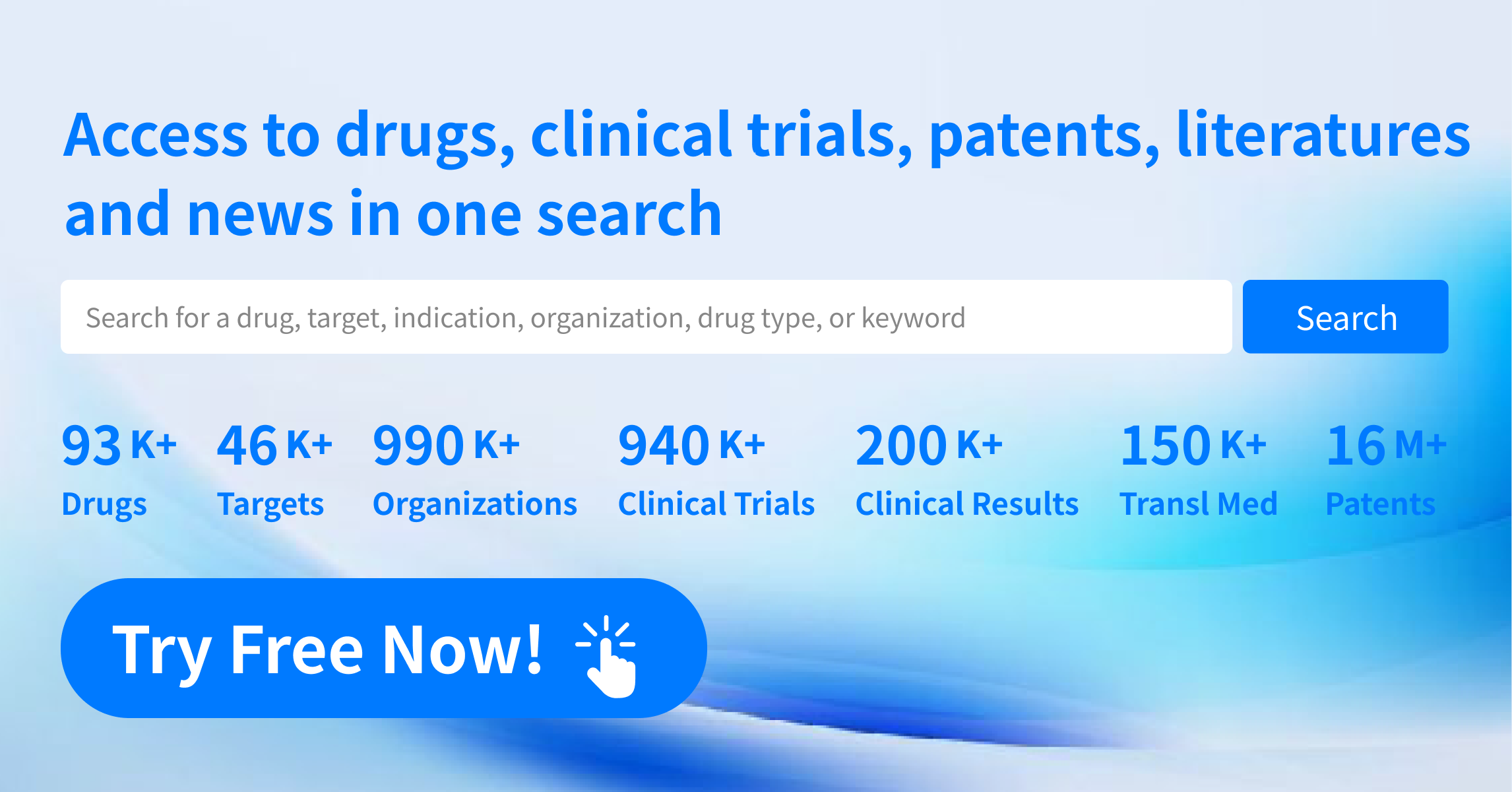Pharma Frontiers: Daily Digest of Global Pharmaceutical News – Sep 11
1.Merck/Daiichi Sankyo's B7-H3 ADC Shows Positive Clinical Results
On September 9, Merck announced positive interim results from the dose optimization phase of the ongoing Phase 2 IDeate-Lung01 trial. The analysis revealed that ifinatamab deruxtecan (I-DXd), a potential first-in-class B7-H3-targeting ADC developed in collaboration with Daiichi Sankyo, achieved a disease control rate (DCR) of 90.5% and an objective response rate (ORR) of 54.8% in previously treated patients with extensive-stage small cell lung cancer (ES-SCLC). The detailed data were presented at the 2024 World Conference on Lung Cancer (WCLC24). A related Phase 3 trial, IDeate-Lung02, has already begun, with the first patient dosed last month. I-DXd was granted orphan drug designation by the U.S. FDA in April 2023 and by the European Commission in February 2024 for the treatment of SCLC.
2.Positive Results for PI3Kα Inhibitor RLY-2608; Relay’s Stock Soars Over 50%
On September 9, Relay Therapeutics released positive interim data from the first human trial of its investigational therapy, RLY-2608, the first allosteric, pan-mutant, and PI3Kα isoform-selective inhibitor. The data showed that in heavily pretreated patients with HR-positive, HER2-negative locally advanced or metastatic breast cancer harboring PI3Kα mutations, treatment with RLY-2608 (600 mg) in combination with fulvestrant demonstrated clinically meaningful progression-free survival (PFS). As of the interim data cutoff on August 12, 2024, 118 patients had been enrolled in the RLY-2608 plus fulvestrant group, with 52 receiving the recommended Phase 2 dose (RP2D) without PTEN or AKT co-mutations. With a median follow-up of 7.5 months, the median PFS in all PI3Kα-mutant patients was 9.2 months. Among 30 patients with measurable disease, one-third achieved partial response (PR), with an ORR of 33% (n=10; 8 confirmed, 1 confirmed after the data cutoff, and 1 awaiting confirmation). Nearly three-quarters of patients experienced tumor shrinkage (73%; n=22). On the same day the clinical data was announced, Relay Therapeutics also announced a public offering of $200 million in common stock. Relay Therapeutics' stock surged 52.4% on the same day, reaching a total market value of $1.273 billion.
3.AstraZeneca's Trop2 ADC Misses OS Endpoint in Phase III NSCLC Trial
On September 9, AstraZeneca presented the latest data from the Phase III trial of its Trop2 ADC drug Dato-DXd for the treatment of locally recurrent or metastatic non-small cell lung cancer (NSCLC) at the WCLC conference. These data were also published in the Journal of Clinical Oncology (JCO). The updated overall survival (OS) results showed that the median OS in the Dato-DXd treatment group and the docetaxel chemotherapy group were 12.9 months and 11.8 months, respectively, with a hazard ratio (HR) of 0.94 and a p-value of 0.53, indicating no statistically significant difference. A clinically meaningful improvement in OS was observed in the non-squamous NSCLC subgroup, but not in the squamous NSCLC subgroup. AstraZeneca also conducted a biomarker analysis, revealing that patients positive for QCS-NMR experienced more significant benefits in overall response rate (ORR) and progression-free survival (PFS) with Dato-DXd treatment. AstraZeneca believes that QCS-NMR could serve as a predictive biomarker for efficacy, offering valuable insights for selecting biomarkers in the clinical development of other ADC drugs.
4.BeiGene's PRMT5 Inhibitor Clinical Trial Application Accepted
On September 10, the Center for Drug Evaluation (CDE) website announced the acceptance of BeiGene's clinical trial application for BGB-58067 tablets. According to publicly available information from BeiGene, BGB-58067 is a PRMT5 inhibitor and an investigational drug for solid tumors, expected to enter clinical trials in 2024. This marks the first clinical trial application for the product in China. PRMT5 is a new target in the field of synthetic lethality. Research has shown that the gene synthetically lethal with PRMT5 is MTAP, a tumor suppressor gene that is often deleted in cancers. MTAP deletion leads to the accumulation of its substrate, methylthioadenosine (MTA), which binds to PRMT5 to form a PRMT5-MTA complex that significantly inhibits PRMT5 activity. These studies suggest that inhibiting PRMT5 activity in MTAP-deleted tumors could potentially kill cancer cells, representing a novel therapeutic strategy for cancer. According to incomplete statistics, more than 10 PRMT5 inhibitors are currently in clinical trials globally.
5.Betta Pharmaceuticals' EGFR/c-MET Bispecific Antibody Clinical Trial Application Accepted
On September 10, Betta Pharmaceuticals received a "Notification of Acceptance" (Acceptance No.: CXSL2400603) from the National Medical Products Administration (NMPA) for its clinical trial application for MCLA-129 for injection. The proposed indication is for the treatment of advanced solid tumors (including but not limited to wild-type colorectal cancer, liver cancer, head and neck squamous cell carcinoma, pancreatic cancer, adenocarcinoma of unknown primary, and other advanced solid tumors). MCLA-129 is a bispecific antibody targeting epidermal growth factor receptor (EGFR) and mesenchymal-epithelial transition factor (c-MET), designed to simultaneously block signal transduction of both EGFR and c-MET, thereby inhibiting tumor growth and survival. It also enhances antibody-dependent cellular cytotoxicity (ADCC), increasing the potential to kill tumor cells. EGFR is highly expressed in various advanced solid tumors, while abnormal MET signaling is implicated in the pathogenesis and poor prognosis of many cancers. Blocking both EGFR and MET pathways has therapeutic potential for several advanced solid tumors. In January 2019, Betta Pharmaceuticals entered a strategic partnership with Dutch company Merus, obtaining exclusive rights to develop and commercialize the MCLA-129 project in China, while Merus retains global rights outside China.
6.Chia Tai Tianqing's BCL-2 Inhibitor TQB3909 Clinical Data Presented for the First Time
At the ESMO conference, Chia Tai Tianqing will present the first analysis results from the Phase I study of its BCL-2 inhibitor TQB3909 in relapsed or refractory non-Hodgkin lymphoma (NHL) and acute myeloid leukemia (AML) through an oral presentation. Data as of April 24, 2024, showed that 88.9% (16/18) of patients with chronic lymphocytic leukemia/small lymphocytic lymphoma (CLL/SLL) achieved a response, including 8 cases of complete remission/complete remission with incomplete hematologic recovery (CR/CRi) and 8 cases of partial remission (PR). The median follow-up time was 9.5 months, with neither the median duration of response (mDOR) nor median progression-free survival (mPFS) reached. Among B-cell NHL patients, 37.5% (12/32) achieved a response. In 16 evaluable AML patients, 1 case (6.3%) achieved CR and 4 cases (25.0%) achieved CRi. The study concluded that TQB3909 demonstrated significant efficacy in patients with relapsed/refractory B-NHL, with manageable safety, providing a promising therapeutic option for B-NHL patients, including those resistant to BTK inhibitors.
7.Sanhome Pharmaceutical's Third-Generation EGFR Inhibitor Approved for First-Line NSCLC Treatment
On September 9, according to the NMPA website, Sanhome Pharmaceutical’s Oritinib Mesylate has received approval for its second indication, specifically for the first-line treatment of patients with locally advanced or metastatic non-small cell lung cancer (NSCLC) with EGFR-sensitive mutations (Approval No.: CXHS2300115). Oritinib Mesylate is Sanhome Pharmaceutical's third-generation EGFR tyrosine kinase inhibitor (TKI). In June this year, it was approved for second-line and subsequent treatment in adult patients with locally advanced or metastatic NSCLC harboring confirmed EGFR T790M mutations, following disease progression during or after EGFR-TKI therapy. Additionally, a study on its use as adjuvant therapy in patients with stage II-IIIB EGFR-mutated NSCLC after surgery (SHC013-III-02) is ongoing. In a randomized, double-blind, positive-drug-controlled, multicenter Phase III clinical trial evaluating Oritinib Mesylate for first-line treatment of locally advanced or metastatic NSCLC with EGFR-sensitive mutations, results showed that the median progression-free survival (PFS) assessed by IRC was 19.3 months in the Oritinib Mesylate group compared to 9.8 months in the Gefitinib group. Oritinib Mesylate extended median PFS by 9.5 months compared to standard Gefitinib treatment. In terms of safety, most adverse events reported during the clinical trial were mild to moderate, with lower incidences of common adverse reactions such as rash and hematologic toxicity.
8.Bayer’s Eylea 8mg Pre-Filled Syringe Approved for EU Market
On September 9, Bayer announced that the European Medicines Agency (EMA) had approved the pre-filled syringe for Eylea™ 8mg (114.3mg/ml solution for injection) in the European Union. The new pre-filled syringe, named OcuClick™, provides ophthalmologists with a portable and efficient way to accurately deliver a 70-microliter dose of Eylea 8mg for the treatment of neovascular (wet) age-related macular degeneration (nAMD) and diabetic macular edema (DME). Germany will be one of the first markets to launch the new pre-filled syringe. According to Bayer, Eylea 8mg was developed to extend treatment intervals and reduce disease burden while maintaining efficacy and safety comparable to the standard Eylea 2mg dose. Based on the successful pivotal PULSAR and PHOTON clinical trials, the European Union has approved Eylea 8mg for the treatment of nAMD and DME, allowing for extended treatment intervals of up to five months in appropriate patients. In the PULSAR and PHOTON studies, both 12-week and 16-week dosing regimens of Eylea 8mg achieved non-inferior outcomes in best-corrected visual acuity (BCVA) compared to the fixed 8-week dosing of Eylea 2mg.
How to obtain the latest research advancements in the field of biopharmaceuticals?
In the Synapse database, you can keep abreast of the latest research and development advances in drugs, targets, indications, organizations, etc., anywhere and anytime, on a daily or weekly basis. Click on the image below to embark on a brand new journey of drug discovery!




